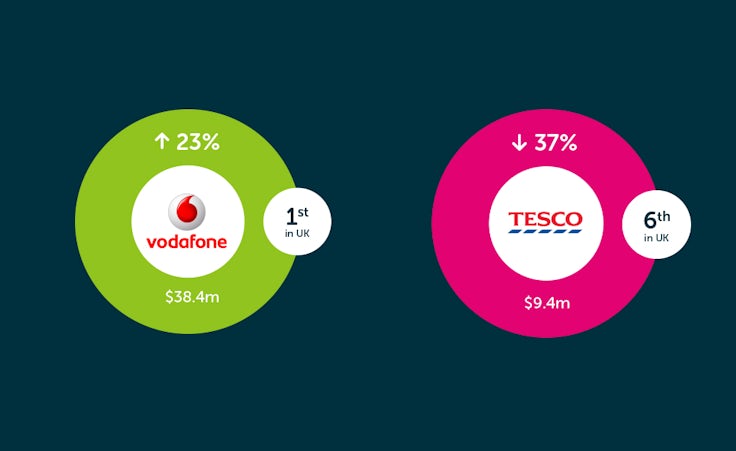How Vodafone used science to optimise its marketing spend
Vodafone took inspiration from pharmaceutical companies as it sought to put testing at the heart of the business and take its brand research “to the next level”.

Speaking at a Thinkbox event today (5 November) on the hidden impact of TV advertising, Vodafone’s head of brand strategy, insight and operations David Still said the brand has been working hard for the past 18 months to gain a thorough understanding of its media ROI.
“At Vodafone, we’re trying to make testing part of our DNA. Everything we do should have a test at the heart of it because frankly, that’s the only way we’ll learn. There are not enough businesses that get out there and spend a bit of money to see what they can learn,” he said.
He argued that while econometric models are good for proving a correlation between ad spend and sales, they aren’t always useful to marketers who want to get into the nitty gritty of their ad campaigns.
“Econometric models demonstrate a correlation between spend and sales, not causation. Too many people try to use econometric models for questions that aren’t best suited to be answered, like ‘How many sales did this ad get us in the run-up to Christmas’,” he explained.
Moving from marketing to science
To determine the impact of its short-term campaigns, the company took inspiration from the pharmaceutical industry.
When drug companies wants to prove whether a new drug saves lives, they do controlled and exposed testing. While some people get given the drug, others get the placebo. If the drug works, they try different levels of the drug with people to establish the optimum dosage.
“In my mind, there is nothing that is more robust than controlled and exposed testing, which is why it was the methodology we used to determine whether our spend works. We essentially used the principles of science in marketing,” said Still.
Vodafone asked a team of scientists to find out how its different channels work in isolation and in combination with others. When developing these tests, Vodafone trialled various spend levels.
“We tested our usual spend, and up to 16 times what we’d usually spend to determine our limits,” he added.
The brand ran hundreds of tests over a 12-week period in 12 US regions. For example, in one region it tested TV, search and online over the course of a week, using high levels of TV spend, medium levels of search spend and low levels of online spend. The week after, Vodafone moved its spend around.
“We took all of the media platforms and ran different levels of spend against each other to see how the channels react. I now know for each of our media channels and for any given spend what that will deliver in terms of volume sales,” he said.
From the results, Vodafone found that TV is still hugely important to the business.
“It delivers a truckload of volume, regardless of the message that we put into it. The amount that we can spend is less than we’re currently spending so we have some growth ahead as a channel,” he said.
TV’s hidden effects
At the event, Thinkbox also unveiled a study that it commissioned with GroupM to reveal different media channels’ effects on driving response and TV advertising’s evolving role.
For example, the marketing body’s study found that TV creates the most short to medium term sales. Media accounts for around 39% of sales in the short to medium term, and 33% of these media-driven sales are driven by TV advertising – more than any other communication channel. By comparison, paid-for online search created 22%, online display 12%, affiliates 10%, print 8%, direct mail 8%, radio 3% and outdoor 1%.
This study also found that TV is responsible for driving an indirect response through online channels, generating 33% of media-driven sales via paid-for online search; 26% of media-driven sales via online display and 20% of media-driven sales via affiliate marketing.
In addition to this GroupM found that TV is responsible for driving 33% of all media driven interactions for brands on Facebook, such as likes and comments. This effect of TV on Facebook was two-fold. Firstly, exposure to TV advertising prompts consumers to directly engage with Facebook. Secondly, TV drives significant volumes of sales and, after purchase, consumers go on to engage with Facebook.
Matt Hill, research and planning director at Thinkbox: “This research gives us a comprehensive understanding of the wide-ranging effects advertising has. TV advertising delivers both long term brand building and short to medium term sales. I hope this research can be put to use helping make advertising work even better.”
- Hear all about the importance of data insight at this year’s Festival of Marketing. Taking place on 11 and 12 November there will be 12 stages and hundreds of speakers. Click here for information and to book tickets.






